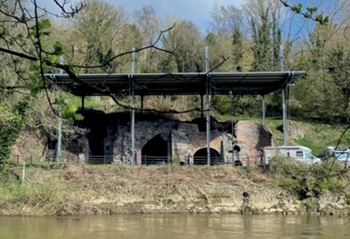Lands Chamber
Contents |
[edit] Introduction
The Lands Chamber is one of four chambers within the Upper Tribunal, part of the UK’s administrative justice system. It was formerly the Lands Tribunal, created by the Lands Tribunal Act 1949, but its functions were transferred to the Upper Tribunal in 2009.
The Upper Tribunal was set up to provide a common means for handling appeals against the decisions of lower tribunals. As such it has equivalent status to the High Court, allowing it to set precedents and enforce decisions. It is the only tribunal to have the power of judicial review.
The Lands Chamber is independent and decides on land disputes, as well as appeals from:
- Valuation tribunals.
- Leasehold valuation tribunals.
- Residential property tribunals.
[edit] Applying
It is possible to apply to the tribunal if the case is about:
- Compensation for the compulsory purchase of land.
- Discharge or modification of land affected by a restrictive covenant.
- Compensation for land affected by public works.
- A tree preservation order.
- Compensation for damage to land caused by subsidence from mining.
- Valuation of land or buildings for capital gains tax or inheritance tax purposes.
- Rights to light disputes.
- Compensation for property blight.
However, opting for a mediation service could be quicker and cheaper than applying for the tribunal.
[edit] Appealing
It is possible to appeal to the Lands Chamber if it is believed there was a legal problem with the decision of the tribunals or the First-tier Tribunal (Property Chamber). However, permission must be given by the original tribunal before an appeal is possible (unless the case is about a rates decision made by the valuation tribunal in England or Wales).
The instructions for appealing are contained in the decision letter. A request for permission must be received by the original tribunal within 28 days of the decision letter.
An appeal should include:
- A copy of the decision being appealed.
- A brief summary of what the case is about.
- Whether the party appealing wishes to attend the appeal hearing.
- Whether any expert witnesses are to be called.
- ‘Statement of case’, i.e. why the decision is being appealed.
- Any other documents required.
The Chamber than decides whether to consider the case, and usually will ask the applicant to attend a hearing. Hearings are generally held in public and, depending on the size of the claim, can cost between £275 and £16,500. If the case is won, the chamber may order the other party to pay the hearing costs.
A decision is issued in writing, usually within 3 months of the hearing.
If it is believed there was a legal problem with the decision at the Lands Chamber, it may be possible to appeal to a higher court. If the Chamber judge refuses permission, the applicant can take their appeal request to the Court of Appeal in England and Wales.
[edit] Decisions database
There is a decisions database available to search and find out the reasons why previous decisions have been made by the Chamber.
[edit] Related articles on Designing Buildings Wiki
- Civil procedure rules.
- Court settlement process.
- Disputes.
- European Court of Human Rights.
- Litigation.
- Mediation.
- Planning permission.
- Property blight.
- Property Chamber First tier Tribunal FTT.
- Restrictive covenant.
- Rights to light.
- Technology and Construction Court.
[edit] External resources
- Gov.uk - Upper Tribunal lands
Featured articles and news
The act of preservation may sometimes be futile.
Twas the site before Christmas...
A rhyme for the industry and a thankyou to our supporters.
Plumbing and heating systems in schools
New apprentice pay rates coming into effect in the new year
Addressing the impact of recent national minimum wage changes.
EBSSA support for the new industry competence structure
The Engineering and Building Services Skills Authority, in working group 2.
Notes from BSRIA Sustainable Futures briefing
From carbon down to the all important customer: Redefining Retrofit for Net Zero Living.
Principal Designer: A New Opportunity for Architects
ACA launches a Principal Designer Register for architects.
A new government plan for housing and nature recovery
Exploring a new housing and infrastructure nature recovery framework.
Leveraging technology to enhance prospects for students
A case study on the significance of the Autodesk Revit certification.
Fundamental Review of Building Regulations Guidance
Announced during commons debate on the Grenfell Inquiry Phase 2 report.
CIAT responds to the updated National Planning Policy Framework
With key changes in the revised NPPF outlined.
Councils and communities highlighted for delivery of common-sense housing in planning overhaul
As government follows up with mandatory housing targets.


















